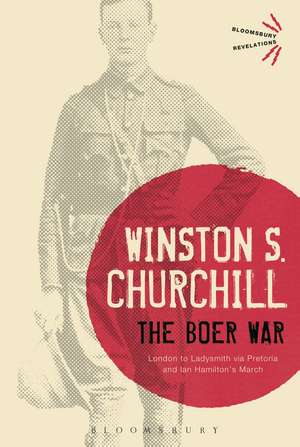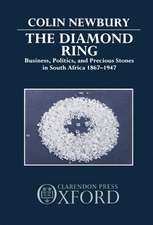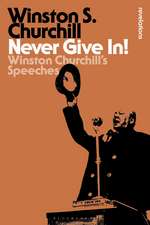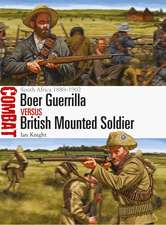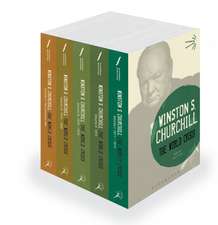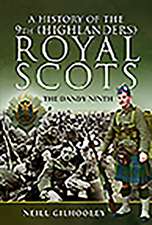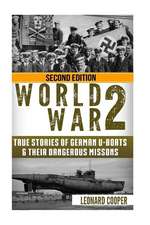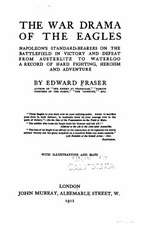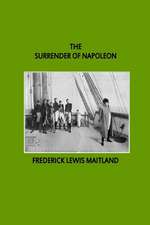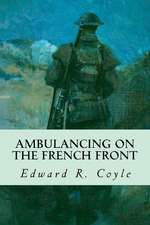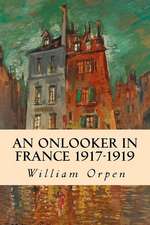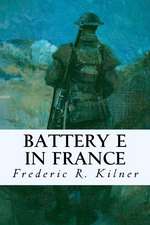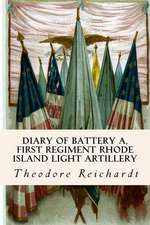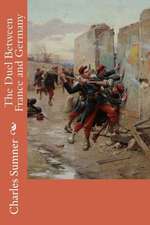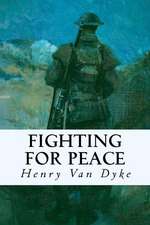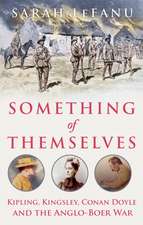The Boer War: London to Ladysmith via Pretoria and Ian Hamilton's March: Bloomsbury Revelations
Autor Sir Sir Winston S. Churchillen Limba Engleză Paperback – 9 oct 2013
Din seria Bloomsbury Revelations
-
 Preț: 125.75 lei
Preț: 125.75 lei - 13%
 Preț: 154.75 lei
Preț: 154.75 lei - 18%
 Preț: 177.18 lei
Preț: 177.18 lei - 19%
 Preț: 175.68 lei
Preț: 175.68 lei - 7%
 Preț: 109.19 lei
Preț: 109.19 lei - 14%
 Preț: 132.26 lei
Preț: 132.26 lei - 18%
 Preț: 180.74 lei
Preț: 180.74 lei - 14%
 Preț: 131.38 lei
Preț: 131.38 lei - 19%
 Preț: 175.85 lei
Preț: 175.85 lei - 7%
 Preț: 166.95 lei
Preț: 166.95 lei - 11%
 Preț: 183.45 lei
Preț: 183.45 lei - 14%
 Preț: 145.64 lei
Preț: 145.64 lei - 7%
 Preț: 163.86 lei
Preț: 163.86 lei - 15%
 Preț: 143.65 lei
Preț: 143.65 lei - 13%
 Preț: 156.03 lei
Preț: 156.03 lei - 19%
 Preț: 175.39 lei
Preț: 175.39 lei - 23%
 Preț: 133.61 lei
Preț: 133.61 lei - 18%
 Preț: 180.74 lei
Preț: 180.74 lei - 7%
 Preț: 155.79 lei
Preț: 155.79 lei - 9%
 Preț: 130.91 lei
Preț: 130.91 lei - 19%
 Preț: 175.39 lei
Preț: 175.39 lei - 22%
 Preț: 134.95 lei
Preț: 134.95 lei - 14%
 Preț: 173.44 lei
Preț: 173.44 lei - 18%
 Preț: 170.11 lei
Preț: 170.11 lei - 8%
 Preț: 191.36 lei
Preț: 191.36 lei - 24%
 Preț: 150.61 lei
Preț: 150.61 lei - 18%
 Preț: 177.79 lei
Preț: 177.79 lei - 13%
 Preț: 177.62 lei
Preț: 177.62 lei - 8%
 Preț: 159.61 lei
Preț: 159.61 lei - 13%
 Preț: 128.12 lei
Preț: 128.12 lei - 8%
 Preț: 160.87 lei
Preț: 160.87 lei - 12%
 Preț: 158.74 lei
Preț: 158.74 lei - 13%
 Preț: 169.91 lei
Preț: 169.91 lei - 19%
 Preț: 144.12 lei
Preț: 144.12 lei - 19%
 Preț: 174.95 lei
Preț: 174.95 lei - 13%
 Preț: 155.87 lei
Preț: 155.87 lei - 19%
 Preț: 174.51 lei
Preț: 174.51 lei - 13%
 Preț: 170.80 lei
Preț: 170.80 lei - 18%
 Preț: 180.27 lei
Preț: 180.27 lei - 8%
 Preț: 145.57 lei
Preț: 145.57 lei - 18%
 Preț: 177.18 lei
Preț: 177.18 lei -
 Preț: 174.91 lei
Preț: 174.91 lei - 12%
 Preț: 160.73 lei
Preț: 160.73 lei - 7%
 Preț: 108.51 lei
Preț: 108.51 lei - 18%
 Preț: 173.48 lei
Preț: 173.48 lei - 23%
 Preț: 133.15 lei
Preț: 133.15 lei - 12%
 Preț: 171.56 lei
Preț: 171.56 lei -
 Preț: 152.57 lei
Preț: 152.57 lei - 13%
 Preț: 136.99 lei
Preț: 136.99 lei - 7%
 Preț: 108.72 lei
Preț: 108.72 lei
Preț: 170.80 lei
Preț vechi: 195.46 lei
-13% Nou
Puncte Express: 256
Preț estimativ în valută:
32.68€ • 34.21$ • 27.04£
32.68€ • 34.21$ • 27.04£
Carte tipărită la comandă
Livrare economică 05-19 aprilie
Preluare comenzi: 021 569.72.76
Specificații
ISBN-13: 9781472520821
ISBN-10: 1472520823
Pagini: 392
Dimensiuni: 156 x 234 x 23 mm
Greutate: 0.59 kg
Editura: Bloomsbury Publishing
Colecția Bloomsbury Academic
Seria Bloomsbury Revelations
Locul publicării:London, United Kingdom
ISBN-10: 1472520823
Pagini: 392
Dimensiuni: 156 x 234 x 23 mm
Greutate: 0.59 kg
Editura: Bloomsbury Publishing
Colecția Bloomsbury Academic
Seria Bloomsbury Revelations
Locul publicării:London, United Kingdom
Caracteristici
Churchill's eyewitness account of the Boer War of 1899-1902, now in the Bloomsbury Revelations series
Notă biografică
Sir Winston Churchill (1874-1965) was Prime Minister of the United Kingdom on two occasions, from 1940 to 1945 and again from 1951-1955. Celebrated as one of the greatest wartime leaders of the 20th Century, he was also a gifted orator, statesman and historian. He was awarded the Nobel Prize for Literature in 1953.
Cuprins
London to LadysmithForewordI. Steaming SouthII.The State of the GameIII. Along the Southern Frontier IV.In NataIV. A Cruise in the Armoured TrainVI. Distant GunsVII. The Fate of the Armoured TrainVIII. Prisoners of WarIX. Through the Dutch Camps X. In Afrikander BondsXI. I Escape from the BoersXII. Back to the British LinesXIII. Christmas and New YearXIV. A Military Demonstration and Some Good NewsXV. The Dash for Potgieter's Ferry XVI. Trichardt's Drift and the Affair of Acton HomesXVII. The Battle of Spion KopXVIII. Through the Five Days' ActionXIX. A Fresh Effort and an Army ChaplainXX. The Combat of Vall Krantz XXI. Hussar HillXXII. The Engagement of Monte CristoXXIII. The Passage of Tugela XXIV. The Battle of Pieters: The Third DayXXV. Upon Majuba DayXXVI. The Relief of LadysmithXXVII. After the Siege Ian Hamilton's MarchI. A Roving CommissionII. Exit General GatacreIII. At Half-Way HouseIV. Two Days with BrabazonV. Two Days with Brabazon - continuedVI. The Dewetsdorp EpisodeVII. Ian Hamilton's MarchVIII. Ian HamiltonIX. The Action of HoutnekX. The Army of the Right FlankXI. LindleyXII. Concerning a Boer ConvoyXIII. Action of JohannesburgXIV. The Fall of JohannesburgXV. The Capture of PretoriaXVI. "Held by the Enemy" XVII. Action of Diamond HillAppendix: Composition of Lieut.-General Ian Hamilton's ForceIndex
